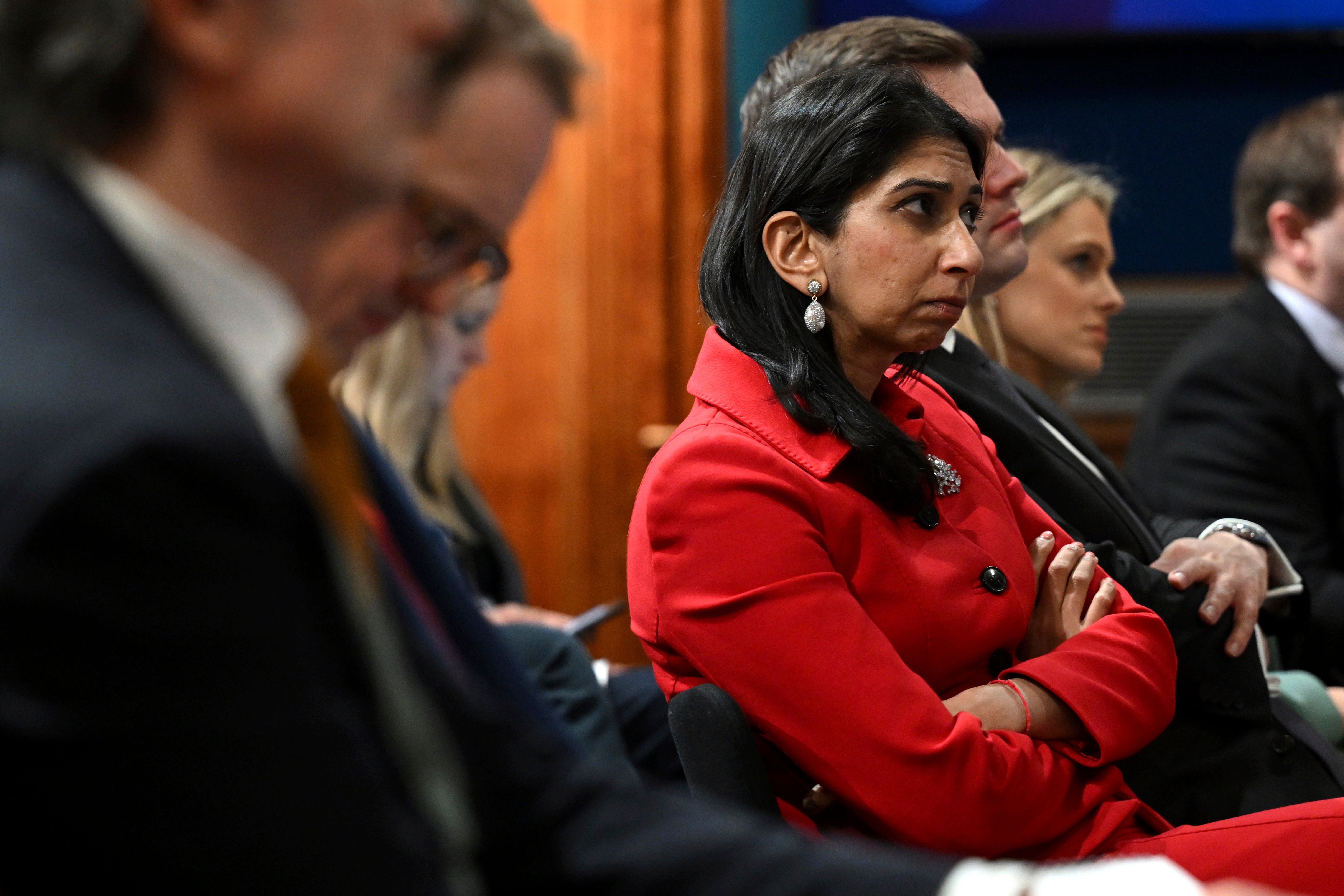UK minister in Rwanda to reinforce migrant deportation plan
Britain’s Home Secretary has arrived in Rwanda for a visit aimed at reinforcing the U.K. government's commitment to a controversial plan to deport some asylum-seekers to the African country

Your support helps us to tell the story
From reproductive rights to climate change to Big Tech, The Independent is on the ground when the story is developing. Whether it's investigating the financials of Elon Musk's pro-Trump PAC or producing our latest documentary, 'The A Word', which shines a light on the American women fighting for reproductive rights, we know how important it is to parse out the facts from the messaging.
At such a critical moment in US history, we need reporters on the ground. Your donation allows us to keep sending journalists to speak to both sides of the story.
The Independent is trusted by Americans across the entire political spectrum. And unlike many other quality news outlets, we choose not to lock Americans out of our reporting and analysis with paywalls. We believe quality journalism should be available to everyone, paid for by those who can afford it.
Your support makes all the difference.Britain's Home Secretary arrived in Rwanda on Saturday for a visit aimed at reinforcing the U.K. government's commitment to a controversial plan to deport some asylum-seekers to the African country.
Ahead of her visit, Suella Braverman said the migration policy “will act as a powerful deterrent against dangerous and illegal journeys.”
Britain's Conservative government wants to stop migrants from reaching the U.K. on risky journeys across the English Channel, and a deportation agreement signed with Rwanda last year was part of measures intended to deter the arrivals. More than 45,000 people arrived in Britain by boat in 2022, compared with 8,500 in 2020.
Under the plans, some migrants who arrive in the U.K. in small boats would be flown to Rwanda, where their asylum claims would be processed. Those granted asylum would stay in the African country rather than return to Britain.
But the 140 million-pound ($170 million) plan has been mired in legal challenges, and no one has yet been sent to Rwanda. The U.K. was forced to cancel the first deportation flight at the last minute in June after the European Court of Human Rights ruled the plan carried “a real risk of irreversible harm.”
Human rights groups cite Rwanda's poor human rights record, and argue it is inhumane to send people more than 4,000 miles (6,400 kilometers) to a country they don’t want to live in.
Earlier this week, a group of asylum-seekers from countries including Iran, Iraq and Syria were granted permission to launch court appeals against the British government's decision to relocate them.
Defending the plan, Braverman said it will “support people to rebuild their lives in a new country” as well as boost Rwanda's economy through investments in jobs and skills.
She is expected to meet President Paul Kagame and her counterpart, Vincent Biruta, to discuss details of the deportation agreement.
Sonya Sceats, chief executive at the nonprofit Freedom from Torture, described the policy as a “cash-for-humans" plan.
“Rather than pushing through this inhumane and unworkable policy, ministers should focus on establishing safe routes to the U.K. and tackling the unacceptable backlog of asylum claims, so people fleeing war and persecution can rebuild their lives with dignity," she said.
___
Follow AP’s coverage of global migration at https://apnews.com/hub/migration